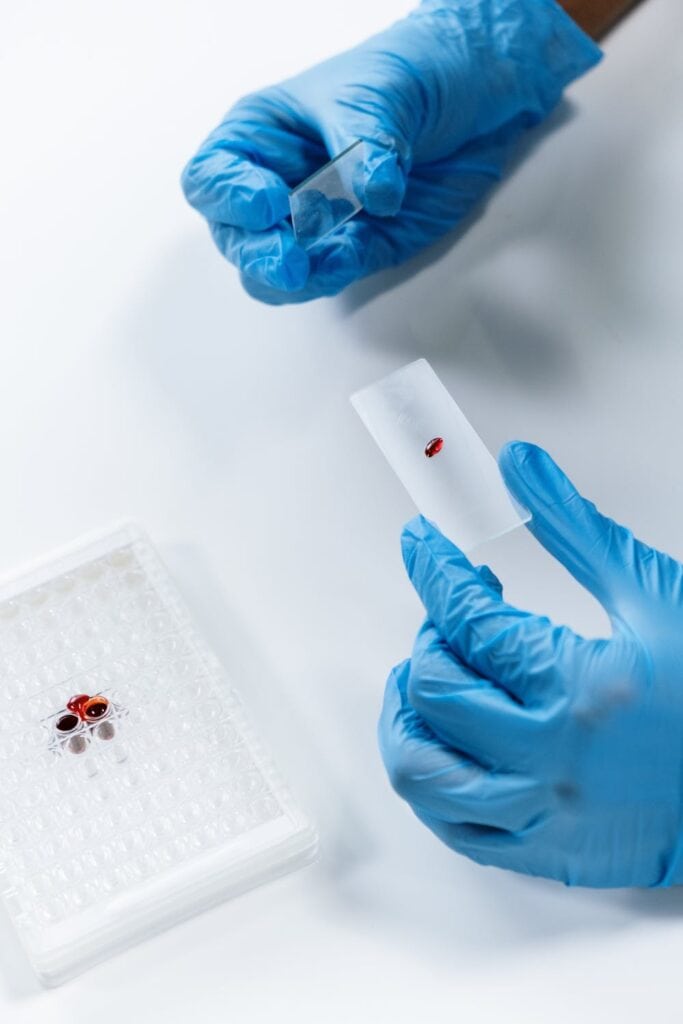In cases where there is reasonable doubt about the child’s paternity, an application can be made to obtain a court ordered paternity test.
In family law proceedings, this often happens in cases where there is a dispute about who the child’s actual parent is.
Before we discuss what a court ordered paternity test is, let’s first understand the meaning of a paternity test.
What Is A Paternity Test?
A DNA test that helps determine the biological parents of a child is called a paternity test.
If a paternity test needs to be carried out for legal purposes, it needs to be done in a medical environment, by visiting the laboratory. A self-sample will not be accepted in this case.
How Is A Paternity Test Taken?
To conduct a paternity test, a bodily sample will be tested. This could include a mouth swab, blood tests, or a cheek swab from the supposed father, and the child.
A paternity test will be taken after the birth of the child.
Reasons To Obtain A Test
A paternity test may be obtained for various reasons, including: –
- To obtain child support from a person
- To refute child support that is being sought against a person
- To prove paternity in family courts for family law cases

What Is A Court Ordered Paternity Test?
In case of disputes regarding the child’s parentage, the Family Court can order a DNA test. This is known as a court ordered paternity test.
In order for the Court to do so, it must be satisfied that there is reasonable ground to believe that there are chances for the person who is requesting a paternity test, to be the father.
The presumption of parentage is laid out by the Family Law Act 1975, wherein a person is presumed to be a parent (before DNA test), if: –
- The child’s birth certificate has their name on it (according to Section 69R)
- Their name is on the signed acknowledgment of artificial conception
- They signed a statutory declaration, or another such legal document, which states that they are a parent of the child (according to Section 69T)
- A court in Australia or a foreign jurisdiction has previously made an order which states that they are a parent of the child (according to Section 69S)
- According to Section 69Q, in cases where the woman was married, living or in a de facto relationship with a man when the child was born, then the child is presumed to be the child of the man.
- According to Section 69P, if a woman is married and a child is born to the woman, it is presumed that her husband is the father of the child.
How To Apply For Court Ordered Paternity Test?
For a court ordered paternity test, an application can be made to the Family Court.
Generally, a court ordered paternity test is issued to settle child support disputes, and other family disputes, which could be in relation to the child, or the mother, or any other person.
The person requesting a court ordered paternity test will need to convince the court that there are solid reasons to question the child’s parentage.
For these purposes, evidence will need to be provided. Evidence could include relationship registration from the NSW Registry of Births, Deaths and Marriages, marriage certificates, or any other information that might be relevant to provide satisfactory evidence.
Can Someone Be Forced To Take A Court Ordered Paternity Test?
The court has the authority to make a parentage testing order in relation to a child in family law proceedings, but the court cannot force the person to go through with the test.
In cases where the person refuses to take a paternity test, the court will need to make a decision based on all the evidence supplied and the balance of probabilities.
However, in cases where a person does not comply with a court ordered paternity test, they may be charged with contempt of court, which is considered to be a criminal offense.
Procedure Of Paternity Test
The steps to take a paternity test include: –
- Completing a declaration and an affidavit.
- Signing the label of the sealed container that holds the DNA sample.
- Attaching a photo of the donor to the declaration (to be done by the sample taker). The photo and declaration must be attached in such a way that it must be clear if the photo was removed.
- The affidavit and declaration must also contain all details regarding the donor’s recent medical history.

What Do Results Of Paternity Test Imply?
The result of paternity tests has an impact on child support matters or parenting proceedings.
Parenting Proceedings
Biological parents have the right to participate in parenting proceedings. Once it is determined whether a child’s father is the biological father, he can be served with a court attendance notice for any parenting proceedings.
Child Support
In case a person paid child support before paternity was determined, they can claim it back if it is found that they are not the biological parent of the child.
On the other hand, if a person was not paying child support, and the test shows that they are the biological father, then they may be required to pay additional child support to compensate for previously missed payments.
Legal Guidance From JB Solicitors
Our expert family lawyers can assist you with the application for a court ordered paternity test. JB Solicitors specialise in dealing with all complex family law matters, and our friendly and experienced lawyers can help you to resolve all matters.
We offer fixed-fee pricing to give you a clear sense of the costs from the start, to ensure transparency in all our processes.
Contact JB Solicitors today to gain efficient legal advice on all family law matters.